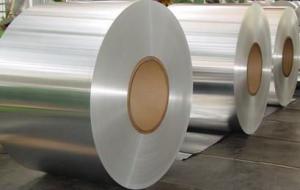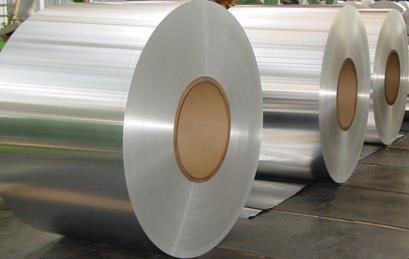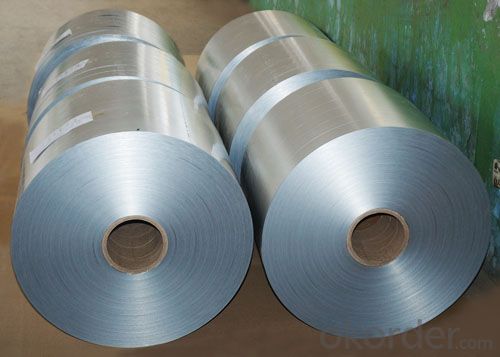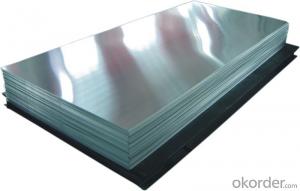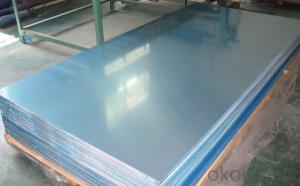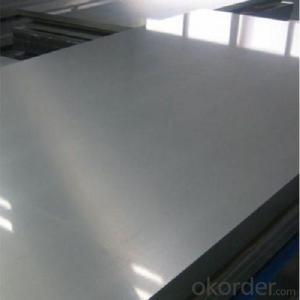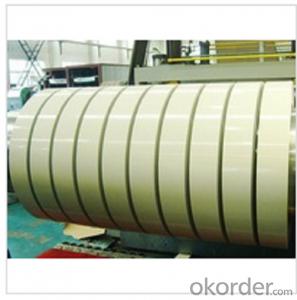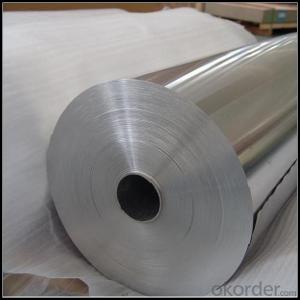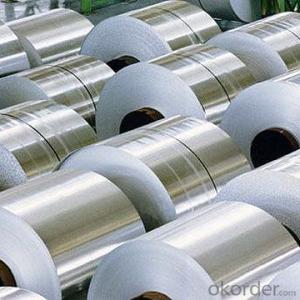Acl Aluminum Coils 5083 Aluminum Sheet Price, Price of Aluminum Sheet/Coil
- Loading Port:
- Shanghai
- Payment Terms:
- TT OR LC
- Min Order Qty:
- 5 m.t.
- Supply Capability:
- 5000 m.t./month
OKorder Service Pledge
OKorder Financial Service
You Might Also Like
Specification
5083 Aluminum Sheet Price, Price Of Aluminum Sheet/Coil
Packaging & Delivery
| Packaging Details: | Standard seaworthy packages in bundles or as per requirement. Container size: The inner size of container is below: 20ft GP: 5.8m(length) x 2.13m(width) x 2.18m(high) about 24-26CBM 4 0ft GP: 11.8m(length) x 2.13m(width) x 2.18m(high) about 54CBM 40ft HG: 11.8m(length) x 2.13m(width) x 2.72m(high) about 68CBM(stainless steel seamless pipe) |
| Delivery Detail: | Within 5-15 days after deposit(price of aluminum coil) |
Our Services
1. Provide products with high quality and reasonable price
2. The first time back to you
3. Perfect after-sale service
4. Small order is acceptable
5. OEM is acceptable
6. 12Months quality guarantee
7. Any third party testing is acceptable
Product Description
| Product Name | Prices of aluminum coil |
| Standard | JIS, AISI, ASTM, GB, DIN |
| Alloy | Yes |
| Width | 720-1250mm or as the customers' requirements |
| Length | 10000-12000mm mm or as the customers' requirements |
| Thickness | 0.12-1.5mm |
| Surface | Black painted,PE coated,GL,color coated,etc |
| Item | steel plate,steel sheet,alloy plate,alloy sheet |
| Application | construction field, ships building industry, petroleum & chemical industries, war and electricity industries, food processing and medical industry, boiler heat exchanger, machinery and hardware fields ,etc. |
| Packing | Export standard or as customers' requirement |
| Delivery time | Within 7 working days, according to customers' quantities |
| Payment | L/C or T/T or as customers' requirement |
| MOQ | 1 Ton |
| Quality | High Quality. We can Provide SGS inspection if you need . |
| Productivity | 60000 Tons/Month |
| Attention | We will supply you good quality and bottom price and first-class service in china and hope to be your golden supplier |
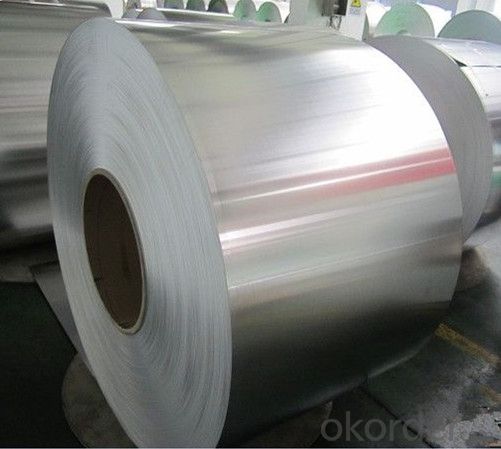
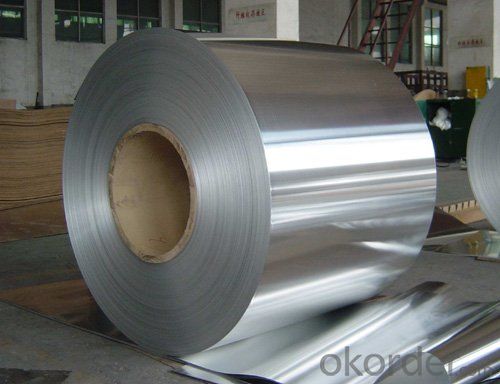
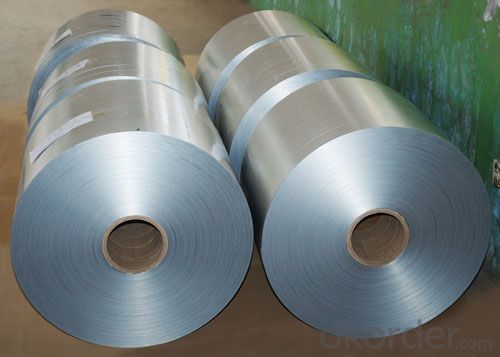
- Q: What is the electrical conductivity of aluminum coils?
- Aluminum coils have a relatively high electrical conductivity. Renowned for its impressive conductivity, aluminum boasts a rating of approximately 37.7 x 10^6 siemens per meter (S/m). As a result, aluminum is an exceptional option for a range of electrical uses, particularly in coil production. The exceptional conductivity of aluminum facilitates the efficient transmission of electric current through the coils, rendering them a fitting choice for electrical wiring, transformers, motors, and other electrical apparatus.
- Q: Are aluminum coils suitable for electrical conductivity?
- Yes, aluminum coils are suitable for electrical conductivity. Aluminum is a highly conductive metal and is widely used in electrical applications due to its excellent electrical conductivity properties. It is commonly used as a conductor in power transmission lines, electrical cables, and various electrical components.
- Q: Is it safe to use aluminum foil to wrap food for cooking purposes?
- <p>Yes, you can use aluminum foil to wrap food for cooking. Aluminum foil is commonly used for wrapping, baking, and cooking food in the oven, grill, or on the stovetop. It helps retain moisture, prevents food from sticking, and can be used to create a sealed environment for steaming or baking. However, it's important to avoid using aluminum foil at very high temperatures as it can react with acidic or alkaline foods and potentially leach aluminum into the food. Always follow the manufacturer's guidelines for safe use and cooking temperatures.</p>
- Q: Can aluminum coils be used in vacuum applications?
- Yes, aluminum coils can be used in vacuum applications. Aluminum is a common choice for vacuum systems due to its low outgassing properties, high thermal conductivity, and resistance to corrosion. It is suitable for various vacuum applications such as cooling, heating, and heat transfer.
- Q: How do aluminum coils contribute to noise reduction?
- Aluminum coils contribute to noise reduction primarily due to their ability to absorb and dampen vibrations. When installed in various applications, such as in HVAC systems or automotive components, the aluminum coils help to minimize the transfer of sound waves by absorbing and dissipating the energy created by vibrations. This helps to reduce overall noise levels, creating a quieter and more comfortable environment.
- Q: Is it possible to use a metal detector to locate an aluminum coil?
- <p>Yes, you can use a metal detector to detect aluminum coils. Metal detectors are designed to detect various types of metal, including aluminum. While they are often used for detecting ferrous metals like iron, they can also pick up non-ferrous metals such as aluminum. The effectiveness of detecting aluminum may vary depending on the type of metal detector and its sensitivity settings. Ground conditions and the size and composition of the aluminum coil can also affect detection. It's important to adjust the metal detector to the appropriate settings for detecting non-ferrous metals to increase the chances of successful detection.</p>
- Q: How are aluminum coils used in rainwater harvesting systems?
- Aluminum coils are commonly used in rainwater harvesting systems as a key component of the gutter system. These coils are used to channel and collect rainwater from the roof into the storage tanks or barrels. The coils, often placed along the edges of the roof, help in directing the flow of water into the gutters, ensuring efficient collection and storage of rainwater for various purposes such as irrigation or household use.
- Q: I have a 1994 Impala SS with a 5.7L lt1 engine with cast iron heads. Which is better in horsepower gain? Aluminum heads or cast iron heads? People say cast iron heads downsize the hp from 300 to 260 hp. Also which of the two heads are more durable and less restrictive?
- Aluminum Heads are lighter, easy to repair,BUT... they warp easily if the engine gets too hot, the sparkplug holes strip easier plus the the plugs are more likely to get frozen in. Cast Iron Heads are heavier but they can handle overheating a lot better (without warping). Harder to strip out the sparkplug holes and plugs less likely to get frozen in. As far as Hp, it depends on specific heads and who makes them. There also can be Intake Manifold- to-head match up problems and which exhaust manifold (or Headers) goes on which head. You need to talk to someone who really knows all about the head choices for your block.
- Q: Is it possible to utilize a grinder for cutting aluminum coils?
- <p>Yes, you can use a grinder to cut aluminum coils, but it's important to use the right type of grinder and accessories. An angle grinder with a cutting wheel or a metal cutting disc is suitable for this task. Ensure the grinder is equipped with a safety guard and that you're wearing appropriate safety gear, such as goggles and gloves. Be cautious as aluminum can be slippery and the grinder can generate a lot of heat, which may require frequent cooling to prevent the disc from burning out. It's also advisable to work in a well-ventilated area due to the fine particles produced during cutting.</p>
- Q: What are some common defects in aluminum coils?
- Some common defects in aluminum coils include: 1. Surface defects: These can include scratches, pits, dents, or waviness on the surface of the coil. These defects can occur during the manufacturing process or due to mishandling during transportation or storage. 2. Edge defects: These can include burrs or uneven edges on the coil. They can be caused by improper slitting or cutting processes. 3. Coating defects: If the aluminum coil is coated with a protective or decorative coating, defects such as peeling, cracking, or uneven coating thickness can occur. This can be caused by improper application or curing of the coating. 4. Corrosion: Aluminum is generally known for its corrosion resistance, but it can still be prone to corrosion in certain environments. Corrosion can manifest as pitting, staining, or white powdery deposits on the surface of the coil. 5. Alloy defects: In some cases, the aluminum alloy used in the coil can have defects such as inclusions, impurities, or improper alloy composition. These defects can affect the mechanical properties and overall performance of the coil. 6. Coil shape defects: Aluminum coils should have a uniform and consistent shape, but defects such as coil set (where the coil retains a curvature after unwinding) or camber (where the coil has a slight curvature across its width) can occur. These defects can be caused by improper tension or cooling during the manufacturing process. 7. Weld defects: If the aluminum coil is made by welding together multiple sheets or strips of aluminum, defects in the welds can occur. These can include incomplete welds, cracks, or porosity. These defects can weaken the coil and affect its structural integrity.
Send your message to us
Acl Aluminum Coils 5083 Aluminum Sheet Price, Price of Aluminum Sheet/Coil
- Loading Port:
- Shanghai
- Payment Terms:
- TT OR LC
- Min Order Qty:
- 5 m.t.
- Supply Capability:
- 5000 m.t./month
OKorder Service Pledge
OKorder Financial Service
Similar products
Hot products
Hot Searches
Related keywords
